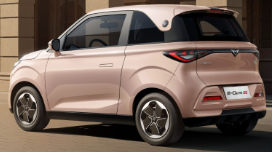In the electric vehicle (EV) market, large batteries often steal the spotlight for long range—but small EV batteries deserve equal attention, especially for urban users. They offer unique advantages that align with daily commuting needs, blending practicality, cost-efficiency, and sustainability. Here are the top 5 reasons small EV batteries are a smarter choice for many buyers.
1. Lower Purchase and Ownership Costs
Smaller batteries mean lower production costs, directly translating to more affordable EV prices. Without the expense of large battery packs, manufacturers can offer entry-level EVs at accessible price points, making electric mobility available to budget-conscious shoppers.
Long-term ownership costs also shrink. Small batteries consume less electricity per charge, cutting daily running costs. They also have fewer cells, reducing the risk of battery-related faults and lowering maintenance expenses over the vehicle’s lifespan.
2. Lighter Weight, Better Efficiency
Small batteries are significantly lighter than their large counterparts, reducing the overall weight of the EV. A lighter vehicle requires less energy to accelerate and maintain speed, boosting energy efficiency and extending real-world range relative to battery capacity.
The reduced weight also enhances handling—small EVs feel more agile and responsive, perfect for navigating crowded city streets and tight parking spots. This agility doesn’t come at the cost of performance for daily use, as small batteries still deliver enough power for urban commutes.
3. Faster Charging Times
Smaller battery packs fill up faster, even with standard home chargers. Most small EV batteries can fully charge in 6–8 hours overnight, eliminating the need for expensive fast-charging infrastructure. For users who charge at home, this means waking up to a fully charged vehicle every morning without lengthy waits.
Even with public chargers, small batteries reach usable charge levels (e.g., 80%) in 30–45 minutes, making short stops during errands or trips quick and convenient.
4. Greener and More Sustainable
Small EV batteries have a smaller environmental footprint throughout their lifecycle. They require fewer raw materials (like lithium and cobalt) to produce, reducing the environmental impact of mining and manufacturing.
Their lower energy consumption also means less demand on power grids, and when paired with renewable energy sources, they become even more eco-friendly. Additionally, smaller batteries are easier to recycle, further enhancing their sustainability credentials.
5. Perfect for Urban Commuting Needs
Most daily commutes are short—under 50km for the average user. Small EV batteries (typically 15–30kWh) offer enough range (150–300km) to cover daily trips, grocery runs, and school drops without range anxiety.
For urban dwellers who rarely take long road trips, the "limited" range of small batteries is irrelevant. Instead, they benefit from the EV’s compact size and maneuverability, which are amplified by the lighter battery pack.
Top Recommendation: KAIYI E-QUTE 04
The KAIYI E-QUTE 04 perfectly embodies the advantages of small EV batteries. With its compact battery pack, it delivers efficient urban mobility, affordable pricing, and quick charging—all tailored to daily commuting needs. For urban users seeking a practical, cost-effective, and sustainable EV, the KAIYI E-QUTE 04 is an excellent choice.

